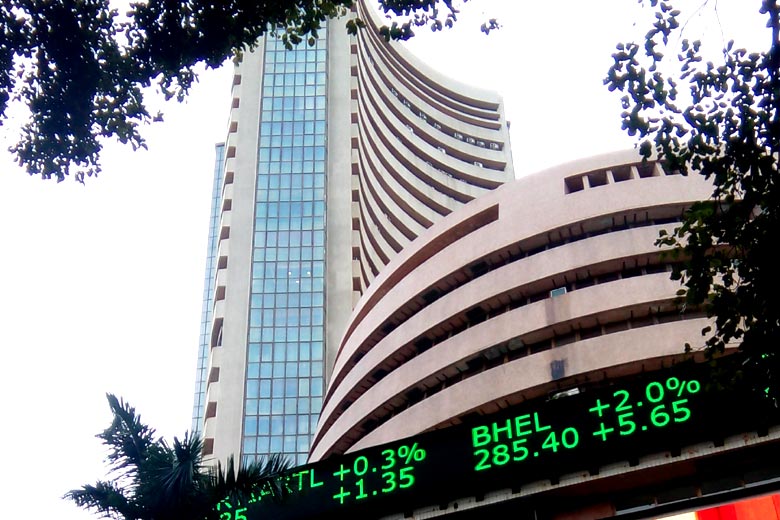India reported the highest cases of COVID-19 in the world as the peak touched 4 lakh daily cases. Currently, it is reporting around 3.5 lakh cases daily. Amid such growing medical chaos in the country, the stock market doesn’t seem to face any impact. The government’s strong decision of not implementing a national lockdown again and extending vaccination to 18+ may be the reasons behind the stability.
On Monday, it stood at 48,475.91 at 2 pm, just losing 8 points compared to closing on 30th April. In April, the market started at 50,029 and closed at 48,782 points on the 30th. Over the month, while the country was pushed into a total medical collapse and people started to stay at home, the market was stable by losing only around 1200 points.
However, experts are now suggesting that if new COVID cases do not go down by the second week of May, estimates of Sensex hitting an all-time high of over 50,500 again is not possible. Due to the growing fear of the second wave, the impact can be seen by the end of this month.
Market stability in April
While the whole country is trying to protect itself from the deadly coronavirus, companies shifting their focus on helping the government to fight, and many oxygen-dependent companies providing their oxygen to hospitals, it is surprising that the stock market was stable.
Experts point out that the gap between ground reality and markets grew in the month. The market is not yet aware of the situation on the ground, slowly it is learning. Once the market starts showing the impact it will show a sudden fall. In April, foreign portfolio investment outflow started to catch phase, if the situation in the ground doesn’t improve in the coming weeks, the outflow will grow at high speed.
Positive Q4 earning and hope
The Q4 2021 results of companies showed good earnings and boosted positivity among the market. This quarter’s earnings show how the Indian economy picked up even after a long lockdown held last year. A brighter future is anticipated among traders and investors as the market will continue to grow.
Positivity among the market comes from Indian economic growth in the last 10-20 years. Though markets continue to grow short-term impacts are often seen during present situations in the country. But the government decided to start the vaccination of 18+ and a clear decision on not considering lockdown this time is helping to avoid short impacts for now.
Swift action by big countries to help India with resources such as medicines, oxygen concentrators, and PPE kits boosts market sentiment. Though the US at first said no to releasing vaccine raw materials, pressure mounted due to social media pushed them to change their decision. With raw materials reaching on time, vaccine makers in the country are confident in producing the required doses to vaccinate the huge 18-44 age population.
Domestic investors
When India reopened the country after a long lockdown in 2020, global liquidity and foreign portfolio investors pushed the hit to grow and helped in reaching record heights. During the same time, many new domestic investors opened their Demat accounts. At present, during the second wave, domestic investors are providing strength to the market.
In April, domestic investors invested nearly Rs 9669 crores while foreign portfolio investors added Rs 11,101 crores. Data shows domestic investors took over foreign portfolio investors in net investment in the Indian market.
Foreign investors are cautious and staying away from COVID hit nations all around the world. While domestic investors are on the hope that the economy will not face a hard hit as it faced in 2020.

